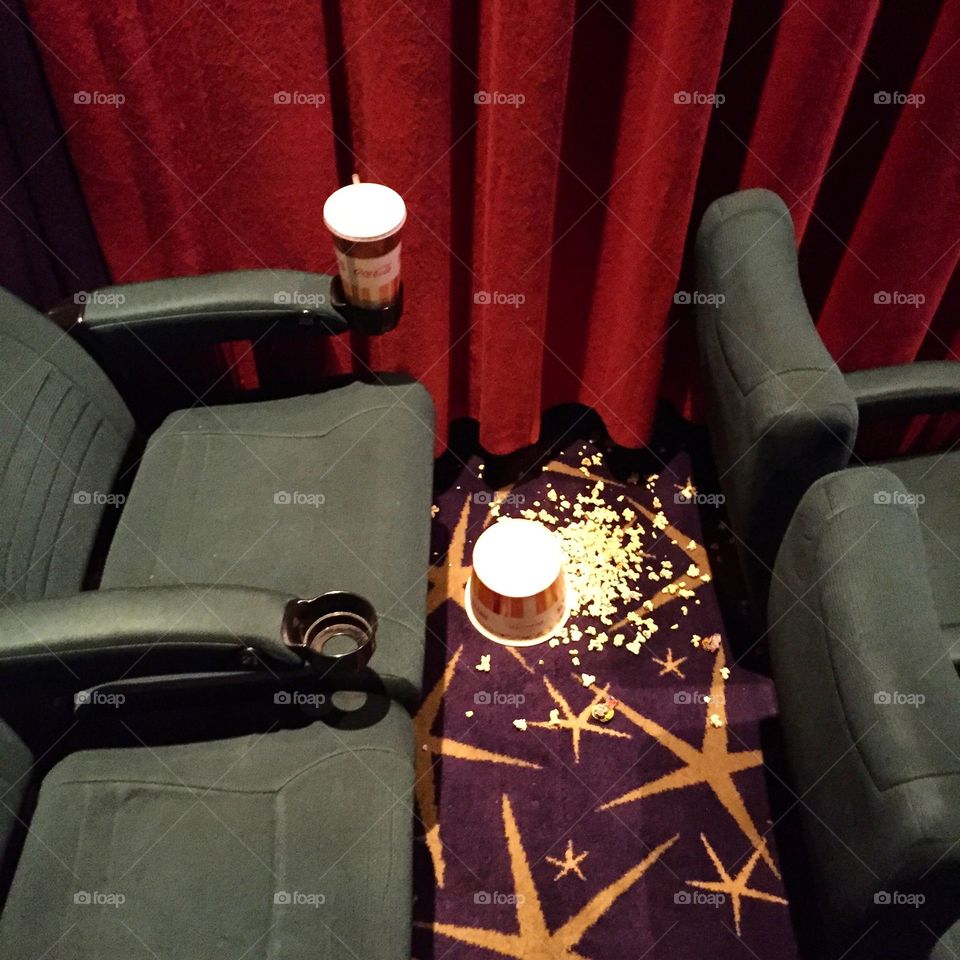28 September 2018
The above photograph is from this year’s World Cup in Russia. They show Japanese supporters, ‘The Blue Samurai’, cleaning up discarded rubbish – plastic cups, bottles and food waste – from one of the stands in the Mordovia Arena after they had, unexpectedly, beaten Argentina in one of their group games.
They did exactly the same when beaten by Belgium 3-2, a game that they were winning until beaten at the death 3-2. Whether celebrating or suffering, the Japanese made sure that no rubbish was left behind. Scott McIntyre, a football journalist based in Japan, explained to the BBC that. ‘You often hear that football is a reflection of culture… if you leave a bottle of some kind, or a food package on the ground… you will be tapped on the shoulder by Japanese people, indicating that you should never leave it there.’ It is an issue shared behaviour and good manners. *
On Monday it was the Year 6 Open Evening for prospective parents and students. It is always a hugely important date in the school calendar and we always very keen for parents to ask questions and to get a sense of the school’s ethos and values. As part of one of our sessions in the main hall I explained how much we value public service and how we want students to make a contribution to school life and to the wider community. To exemplify this, our students have raised money and have volunteered for the Durham foodbanks, local hospices and a variety of other charities. An important part of such evenings is the opportunities provided for parents to ask questions; if you are choosing a school it is important to find out as much as possible. One parent was interested in the ideas I had expressed around ‘making a contribution.’ He asked; ‘How do you measure the impact of any contribution that your students make to society?’ And ‘What evidence do you have that making a contribution helps them to be more successful at school?’ These are logical questions, but quite difficult to measure in anything other than an empirical manner.
 Our 6th form students always volunteer at the Year 6 open evening. It is very important that parents have the chance to speak with those currently at the school and to see how they develop over 5 or 7 years at the school. One of the students explained to parents that he had initially been unsure about what to say about the school, but inspiration came when he was at the cinema. After watching he got up to leave, but then realised that he had left his popcorn carton behind. After retrieving it, he explained that he had been in assembly in his first year at Durham Johnston and the Deputy Headteacher had asked the students, ‘Whose responsibility is it to pick up your popcorn when you leave the cinema? What does it say about you if you leave it behind?’ If you expect someone else to clean up your rubbish, don’t care who cleans it up or don’t even realise that you should then you probably struggle with some aspects of adult life. The 6th form students said that he hadn’t fully grasped the importance of the message at the time, but it was one of many in his 6 years at the school that gradually made him realise the importance of high standards, both as an individual and as part of a community. That’s what he had got from his time at the school. He concluded by noting that, ‘The school consistently churns out nice, respectful people who go on to do good things.’ I’m not sure if that can be measured in a scientific way, but in a succinct manner, it summed up everything we are trying to do at the school. We don’t always succeed, but we do try. His words would sit well alongside Aspire Aude on the school badge. When you spend time with your son or daughter at the weekend it might be pertinent to ask them; ‘Who is responsible for any rubbish that you create? What does it say about you if you think it is someone else’s responsibility?
Our 6th form students always volunteer at the Year 6 open evening. It is very important that parents have the chance to speak with those currently at the school and to see how they develop over 5 or 7 years at the school. One of the students explained to parents that he had initially been unsure about what to say about the school, but inspiration came when he was at the cinema. After watching he got up to leave, but then realised that he had left his popcorn carton behind. After retrieving it, he explained that he had been in assembly in his first year at Durham Johnston and the Deputy Headteacher had asked the students, ‘Whose responsibility is it to pick up your popcorn when you leave the cinema? What does it say about you if you leave it behind?’ If you expect someone else to clean up your rubbish, don’t care who cleans it up or don’t even realise that you should then you probably struggle with some aspects of adult life. The 6th form students said that he hadn’t fully grasped the importance of the message at the time, but it was one of many in his 6 years at the school that gradually made him realise the importance of high standards, both as an individual and as part of a community. That’s what he had got from his time at the school. He concluded by noting that, ‘The school consistently churns out nice, respectful people who go on to do good things.’ I’m not sure if that can be measured in a scientific way, but in a succinct manner, it summed up everything we are trying to do at the school. We don’t always succeed, but we do try. His words would sit well alongside Aspire Aude on the school badge. When you spend time with your son or daughter at the weekend it might be pertinent to ask them; ‘Who is responsible for any rubbish that you create? What does it say about you if you think it is someone else’s responsibility?
* It is worth noting that the Japanese team and manager also cleaned the dressing room after each game that they played. After being beaten by Belgium – 3 games away from the World Cup final – they spent 30 minutes making sure that the dressing room was spotless. It is one thing to encourage good manners and behaviour; it is another to exemplify that behaviour when you are leading others.
